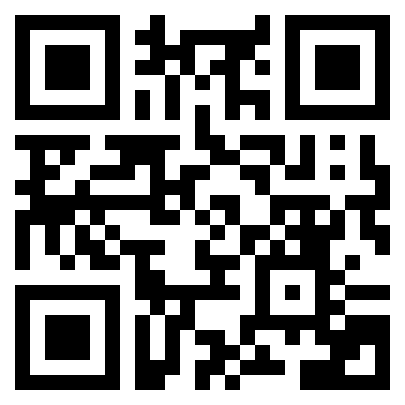Reflective Practices in Nursing

Introduction: Reflective Practices in Nursing
Reflection has been described as the examination of personal thoughts and actions of an individual. Reflective practices has been identified as a most valuable and significant tool for nurse practitioners to gain an in-depth understanding of their own personal strengths and weakness. Reflective practices help an individual to evaluate their strengths and weaknesses in order to eliminate them (Mann, K., Gordon, J. & MacLeod, A., 2009).The main aim of the reflective practices is to identify the negative aspects of an individual behavior to improve the professional competence of an individual.
Reflective practices are helpful for everyone for enhancing their personal growth and development. Reflective practices are also helpful for nurses for number of reasons for updating their professional skills in order to provide best quality of care to the patients (Mann, K., Gordon, J. & MacLeod, A., 2009). In this context; the present research study examines the significance of reflective practice in nursing. In addition to this, the research study also reflects the current policy and practice within Australian nursing and illustrates the linkage between the nursing and Midwifery Board of Australia Nursing Competencies for Registered Nurses.
Critical evaluation of significance of reflective practice in nursing
Reflective practices are increasingly recognized as a most significant practice for nurses to enhance their learning and growth. Reflective practices have gained wide importance for increasing the skills and competency of healthcare professionals. Reflective practices help the professionals to gain learning from the past experiences for improving the knowledge base of the professionals for future (Pearce, P., Phillips, B., Dawson, M. & Leggat, S.G., 2014). The mode of learning through reflective practices is completely different from the formal teaching method as it emphasizes on gaining valuable learning from the past experiences of an individual. Reflective practices help the professionals to think differently through the integration of past theoretical and practical knowledge future (Pearce, P., Phillips, B., Dawson, M. & Leggat, S.G., 2014).
Health care professionals have to function in most complex and changing environment due to continuous change in the needs and requirements of the patients. Thus, it becomes increasingly important for nurses to continuous update their knowledge and skills for meeting the changing needs and requirements of the patients and health care industry (Horsley, T., O’Neill, J., McGowan, J., Perrier, L., Kane, G., Campbell, C., 2010). Reflective practices in this context are increasingly gaining importance in heath care industry for enhancing the competence of the nurses by addressing all the present challenges in the health care industry (Horsley, T., O’Neill, J., McGowan, J., Perrier, L., Kane, G., Campbell, C., 2010).
Nurses should develop themselves as reflective practitioners in order to appropriately address the ever changing needs and demands of the patients. Nurses are responsible for providing best care to the patients and their families. Thus, they should emphasize on developing their skills and knowledge base for providing the best of their ability care and treatment to the patients (Pearce, P., Phillips, B., Dawson, M. & Leggat, S.G., 2014).Reflective practices are a part of the ongoing development of the nurses as it helps them to evaluate and examine their strengths and weakness for their future development. Nurses should develop their professional skills such as found proper ways for interacting and communicating with the patients and their families.
The profession of nurses is highly influences by the changing external environmental factors. Thus, nurses should aim to become self-aware, self-directing to be continuously aware of the changing environment factors. This can be achieved through gaining learning from the past experiences as it helps to evaluate the feedbacks gained from the patients and their families regarding the past services provided by the nurses (Pearce, P., Phillips, B., Dawson, M. & Leggat, S.G., 2014). Reflective practices are becoming increasingly important in Australian nursing practices. Nursing practices in Australia are evolving rapidly over the past few years as a result of the government initiatives in order to strengthen the primary care facilities in Australia (Mann, K., Gordon, J. & MacLeod, A., 2009).
Australian nursing practice lacks a career structure and a proper educational framework for providing the education to nurses regarding the current practices in nursing. Thus, to maximize the contribution of nurses in primary care, Australian government is emphasizing in enhancing the practices and policies of nursing followed in the country to support the expansion of nursing practices in the country (Mann, K., Gordon, J. & MacLeod, A., 2009).
In this context, reflective practices will help to strengthen the practice of nursing in Australia by enhancing the skills and competency of Australia. Highly competent nurse workforce has the potential to improve the structure of heath care industry of the country.There are huge health workforce shortages in Australia which is negatively impacting the future growth and development of primary heath care industry in the country. However, nursing practices has undergone significant changes and expansion over the past years (Horsley, T., O’Neill, J., McGowan, J., Perrier, L., Kane, G., Campbell, C., 2010).
There is wide implementation of reflective practices in nursing practice of Australia to improve the status of primary health care facilities in Australia. Reflective practices have emerged as a most significant tool for providing practice based learning to nurses and improve their skills and knowledge to provide the best health care facilities to patients (Horsley, T., O’Neill, J., McGowan, J., Perrier, L., Kane, G., Campbell, C., 2010).
Reflective practices can be refereed to as thoughtful practices through which a professional can focus within himself in the context of his own lived experiences that enables him to analyze his own personal weaknesses. The basic process of reflective learning can be described as follows (Mann, K., Gordon, J. & MacLeod, A., 2009).The first step is gaining an overview regarding all the past experiences that occurred in the personal or professional life of an individual. Next is questioning about the need of performing past experiences in the way in which they were done and evaluating the measures that can be adopted for improving the past performance of an individual (Mann, K., Gordon, J. & MacLeod, A., 2009).
Patient care is very challenging and complicate task and requires good listening and interpretation skills. The implementation of wide variety of technological devices in the heath care industry has driven an immense need for nurses to be continuously updated regarding the use of current technological devices (Pearce, P., Phillips, B., Dawson, M. & Leggat, S.G., 2014). Nurses in their day to day activities are confronted with the situations that are new and complex and thus requires proper analytical skills in order to analyze and gain an in-depth understanding of the situation. Thus, in this context reflective learning proves to be extremely beneficial as one can sharpen their analytical skills for managing the complex situations that they face in their regular schedule of working (Pearce, P., Phillips, B., Dawson, M. & Leggat, S.G., 2014).
Nursing and Midwifery Board of Australia (National Board) has published certain standards to be adopted for becoming a nurse practitioner. The standards define advanced practice in nursing as the most significant step for applying the advanced levels of knowledge. Skills and experience by the nurse to develop nurse-patient relationship. The standards advocate the use of advanced practices in nursing to enhance the problem solving and decision making skills of the nurses. Advanced practice in nursing aim to provide education to nurses for improving their skills and knowledge (Australian Nursing & Midwifery Accreditation Council, 2013).
National competency standards for registered nurses were first adopted by the Australian Nursing and Midwifery council in the year 1990s. The aim of the national competency standards is to enhance the knowledge base of the nurses and midwives for providing safe and competent care to the patients. National competency standards for registered nurses are referred to as core competency standards through the help of which nurses can evaluate their performance and competence to retain their position as registered nurses. According to the standards develop, registered nurses have to posses certain competence and skills in order to become a registered nurse (Australian Nursing & Midwifery Accreditation Council, 2013).
Registered nurses owes the full responsibility and accountability of their actions and thus it is compulsory for them to have proper education and training in order to enroll as advanced nurses and heath care workers (Nursing & Midwifery Board of Australia. 2006). Thus, reflective practices in this relation can prove to be helpful for nurses to widen their knowledge and competencies and thus become a qualified registered nurse in Australia. Reflective learning is different from formal mode of teaching as it provides the opportunity to nurses to learn from their own experiences and thus is referred to as an attractive mode of learning for health care professionals (Nursing & Midwifery Board of Australia. 2006).
Conclusion
Thus, from the overall discussion held in the overall research study, it can be inferred that reflective practices plays a critical role in enhancing the skills and competencies of nurses. Reflective practices of learning are based on learning from the past experiences in order to overcome the mistakes and faults that occurred in the past life of an individual for their future development. Reflective practices will help to strengthen the practice of nursing in Australia by enhancing the skills and competency of Australia. Nursing practices in Australia lacks a proper structure and thus requires the implementation of an innovative practice to provide proper support and direction for the growth and development of nursing as a profession in the country.
There is wide implementation of reflective practices in nursing practice of Australia to improve the status of primary health care facilities in Australia. Nursing and Midwifery Board of Australia (National Board) has published certain standards to be adopted for becoming a nurse practitioner. Registered nurses owes the full responsibility and accountability of their actions and thus it is compulsory for them to have proper education and training in order to enroll as advanced nurses and heath care workers. Thus, reflective practices in this relation can prove to be helpful for nurses to widen their knowledge and competencies and thus become a qualified registered nurse in Australia.
References
Australian Nursing & Midwifery Accreditation Council. (2013). Retrieved on 03 September, 2014 from: https://www.anmac.org.au/sites/default/files/documents/Consultation_paper_2- For_the_review_and_development_of_RN_ReEntry_and_EPIQ_RN_accreditation_st andards.pdf
Mann, K., Gordon, J. & MacLeod, A. 2009. Reflection and reflective practice in health professions education: a systematic review. Adv in Health Sci Educ 14:595–621.
Pearce, P., Phillips, B., Dawson, M. & Leggat, S.G. 2014. Content of clinical supervision sessions for nurses and allied health professionals. Clinical Governance: An International Journal 18(2): 139-154.
Horsley, T., O’Neill, J., McGowan, J., Perrier, L., Kane, G., Campbell, C. 2010. Interventions to improve question formulation in professional practice and self-directed learning (Review). The Cochrane Library 5. Nursing & Midwifery Board of Australia. 2006. National competency standards for the registered nurse.






